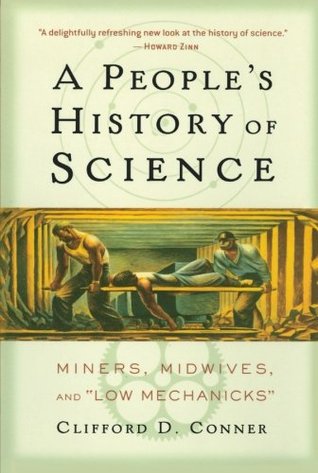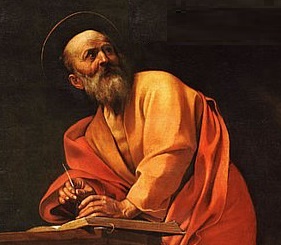A People's History of Science by Clifford D. Connor (Book Review)

If you are looking for a book that will celebrate the Great Minds of History, Clifford Connor’s A People’s History of Science: Miners, Midwives, and Low Mechanicks is not the book for you. Another warning: those who want to maintain their admiration for Tycho Brahe will want to make sure this book does not come near their library. Just as 20th century historian pushed pack against the Great man theory of history promulgated by romantic 19th century historians, “popular history” accounts provide, if not exactly Marxist, a recasting of the historical perspective towards the dispossessed and peasant class which has made up the bulk of humanity since time immemorial. The book does an excellent job at showing how the theoretical contributions made by men like Newton or Copernicus, while valuable, were by no means the most important method of scientific advancement. Instead it was the skilled artisans and mechanics who built up the bulk of empirical evidence that provided the inspiration and data necessary for codified theories to comprehensively explain.
The classed-based snobbery attached to certain intellectual tasks meant that advancements in medicine, optics, and navigation were largely achieved through quasi-scientific methods intuited by surgeon-barbers, lens-makers, and sailors. For example Antonie von Leeuwenhoek was the first person to see a microorganism through a microscope and wrote more than 500 letters to various scientific societies describing his findings. Trained a draper, Leeuwenhoek’s work was considered highly interesting by the elite scientific community but did not lead to advancements in the understanding of biology the way one would have anticipated (it would take more than 200 more years for the germ theory of disease to even be established). Connor would view this as typical of the history of science whereby practical men and women of commerce discover scientific findings that are either disregarded, misunderstood, or stolen by Latin-speaking academics. But who exactly are the “people”?
While acknowledging that some individuals defy categorization, it is useful to recognize working with hands, anonymity, not writing in Latin, and lack of patronage as identifying features that separate the social majority from the elite scholars.
Very few esteemed esteemed scientists of the 16th-18th century escape this book unscathed. As mentioned before, Brahe comes into especially rough treatment for having enslaved the island of Hven, turning it into a feudal cosmic observatory.
The establishment of Brahe’s research depended on a monumental gift from his royal patron, King Frederick II of Denmark… “the whole island of Hven in fee, with all its resident peasants and servants of the crown and all royal incomes and rights, quite and free.”
Another nobleman who receives several body-blows in Prince Henry the Navigator often attributed as having sparked the Age of Discovery through his scientific contributions to the art of navigation. Collins makes it clear that:
Not only was Henry not a navigator, but he rarely set foot on a ship at all. When he did, it was not as one responsible for guiding a craft through unfamiliar waters but as a royal passenger on routine royal voyages… If there is a small kernel of truth in the story that Henry crated a school of navigation science at Sagres, it is that he may have provided funding and a place to attract vanguard seamen to congregate, exchange information, and accumulate a body of navigational knowledge. But if there was any teaching going on, it was not Henry who taught the sailors; it was they who taught him… Henry’s contribution to oceanic science was confined to patronage of navigators, cartographers, mathematicians, and astronomers. But just as the Medicis’ financial support to Michelangelo did not make them artists, neither did Prince Henry’s patronizing make him a scientist. Furthermore, whereas those who gave financial support to artists may in some cases have genuinely wanted to underwrite the creation of aesthetic beauty, Henry’s patronage did not spring from a passion for abstract scientific truth. He had an ulterior motive; his purpose refracted through the crusader’s ideology of holy way against the Muslim world, was colonial conquest and imperial glory.
Ouch. For the Philhellenes this book will also be hard to digest. In an entire chapter titled What “Greek Miracle”? Connor’s is especially vicious to Plato and Aristotle for stifling Western thought for more than a thousand years. More generally the Greeks and Romans were responsible for creating the class-based separation between medicine, to be practiced by gentlemen, and surgery, which would be left to the “barbers, bath-keepers, hangmen, sowgelders and mountebanks and quacks of every description”. A perfect illustration of this counterproductive thinking was when Galen was forced to give up his medical investigations into the actual anatomies of humans and dead animals once he was elevated to the imperial court. There were several other interesting factoids I found interesting in this book including a very early “opium of the masses” argument put forward by Polybius:
Seeing that every multitude is fickle, and full of lawless desires, unreasoning anger, and violent passion, the only recourse is to keep them in check by mysterious terrors… Wherefore to my mind, the ancients were not acting without purpose or at random, when they brought in those vulgar opinions about the gods, and the belief in the punishments in Hades.
The first brain-drain and academic poaching may have actually occurred in the 4th century BCE when the ancient Musauem of Ptolemaic Alexandria attempted to “spend lavishly to attract the best brains… and among the hundred of so regius professors that the establishment a truly remarkably number have let heir names to posterity as benefactors of mankind.” While the focus on elite science in A People’s History is largely in Europe, the snobbery and elitism of pre-modern science was also a problem in other advanced societies like China.
The career of the engineer Ma Chun illustrates the inhibitory effect the scholarly elite had on science and technology. Ma Chun, Needham told us, “was a man of outstanding ingenuity.” Among any accomplishments, he “improved the drawloom” and “invented the square-pallet chain-pump” used so widely throughout the Chinese culture-area afterwards.” In spite of his obviously keen intellect, he had not been educated in the minutia of Confucian scholasticism. Therefore “Ma Chun was quite incapable of arguing with the sophisticated scholars nursed in the classical literary traditions, and in spite of all the efforts of his admirers, could never attain any position of importance in the service of the State, or even the means to prove by practical test the value of the inventions which he made.”
One of the most interesting chapters in the book is Were Hunter-Gatherers Stupid?, which spends a good deal of time discussing the navigational sophistication of the Pacific Islanders. At some point this human society was able to travel all the way from New Zealand to Hawaii (although probably over more than one generation). How can a society without sails, compasses, maps, or the written language traverse thousands of miles on the pacific ocean? Knowledge had to be learned from heuristics, including mental maps, currents, and migratory bird patterns. Just as Franz Boas pointed out that technologically advanced Europeans were freezing to death in the Arctic whilst the local Inuit managed to stay alive comfortably, this chapter forces one to examine just what exactly is meant by technology and intelligence. If information embodied in the traditions and skills passed down throughout the generations allows illiterate sailors to navigate the pacific, then is this different in kind to the technology that Magellan possessed? Arguably not.
However it would have been helpful for Connor to explain why this difference in degree ultimately led the Western mode of scientific inquiry to its long-run accomplishments and subsequent adoption by the rest of the world: namely to ability to identify which elements of a theory are erroneous. Put another way, modern science is course correcting, even if it makes colossal mistakes in the short run. For example, there is no doubt many traditional medicines based on herbs and other concoctions are salubrious (although what fraction of them even are probably useful as compared to neutral ordetrimental is unclear). There is just no way to categorical reject or accept a variety of potential medicines without modern inferential techniques. This is what makes some forms of alternative medicine fundamentally unethical: the refusal to establish a definitive methods to determine which elements of its practice improve human health, and which do not. Haughty intellectual theorists may have stunted some empirical research, but systems-based thinking also allows humans to make fundamental assessments about the values of certain technologies. I am personally sympathetic to the argument that most scientific advancements come from “tinkerers” and engineers rather than lofty theoreticians. But science can never be fully democratic because material reality is independent of human preferences and perceptions.
Connor makes clear from the start that his book will be taking the side of the “great masses” over the “great men”. Any book which acknowledges its biases and goals from the start is to be lauded. With a proliferation of popular science biographees it is an especially useful counterbalance. Awards like the Nobel Prize help to create the erroneous perception that scientific achievements are achieved by a few individuals. A People’s History of Science is a much-needed counterbalance to this view and provides a wealth of insightful examples throughout history where science and technology have been advanced by nameless men and women over many generations whose shoulders later academics were able to stand upon.
